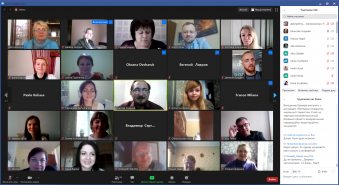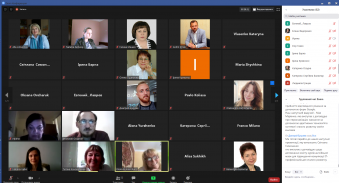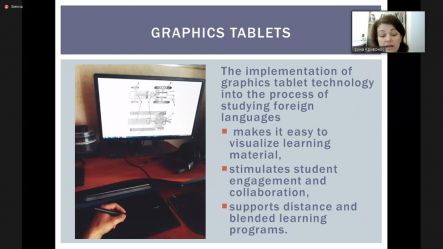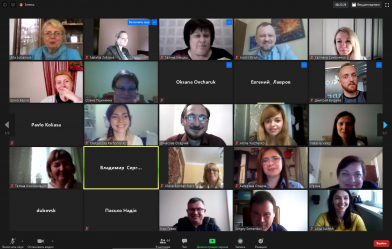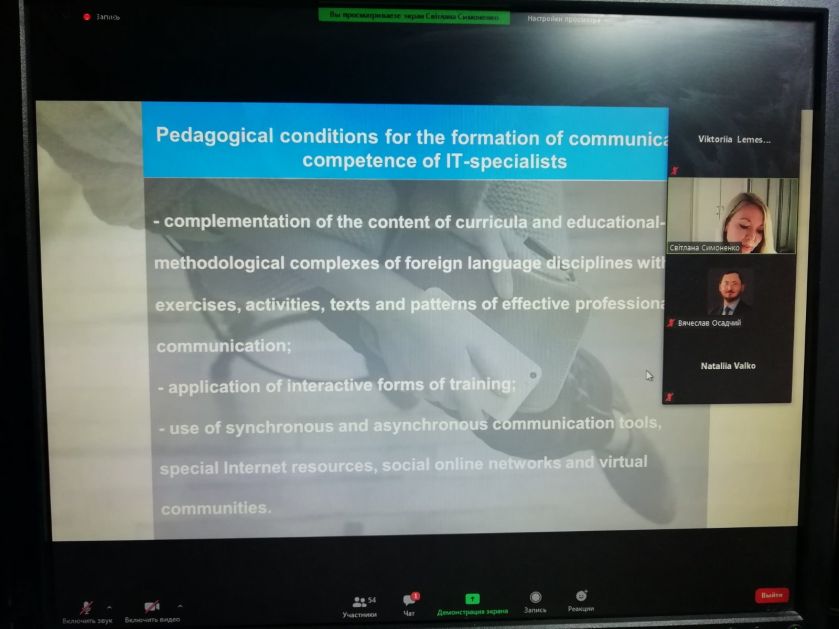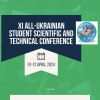The teachers of the department of foreign languages have participated in the International Conference on Sustainable Futures: Environmental, Technological, Social, and Economic Matters (ICSF 2020) at Kryvyi Rih National University, Kryvyi Rih, Ukraine.
The representatives of the department of foreign languages at Tavria University have taken part in the workshop ‘ICT in Education and Sustainable Futures Workshop (ICT@ESF-WS’2020)’ on the 20th of May. The chairs of the workshop have been Kateryna Osadcha (PhD, Associate professor, Department of Computer Science and Cybernetics, Bogdan Khmelnitsky Melitopol State Pedagogical University, Melitopol) and Viacheslav Osadchyi (Professor of Department of Computer Science and Cybernetics, Bogdan Khmelnitsky Melitopol State Pedagogical University, Melitopol).
The participants of the workshop are the employees of Ben-Gurion University of the Negev, Israel, Kryvyi Rih National University, Sumy State Pedagogical University named after A. S. Makarenko, Ternopil Volodymyr Hnatiuk National Pedagogical University, Alfred Nobel University, Petro Mohyla Black Sea National University, H. S. Skovoroda Kharkiv National Pedagogical University, Institute of Information Technologies and Learning Tolls of NAES of Ukraine and of many other prominent Ukrainian universities.
Via Zoom conference 3 reports of the English teachers from Tavria University have been presented:
the head of the department Svitlana Symonenko has presented the research results on the theme ‘Complementing content of English courses for enhancing communication of IT-professionals for sustainable development’;
the senior teacher Nataliia Zaitseva has revealed the aspects of the developing English presentation skills as a component of collaboration competence for sustainable development;
the senior teacher Iryna Kryvonos has presented the study conducted in collaboration with the teacher Viktoriia Lemeshchenko-Lagoda and the Candidate of Technical Science Oleksandr Kolodii (Department of Technology of Structural Materials, TSATU): ‘The integration of information and communication technologies into the process of learning the course of English for Specific Purposes as one of the requirements for sustainable future development‘.
The topic diversity has reached from forming methodology of inculcation in students sustainable development skills to analyzing general professional competencies and developing professional stress-resistance. Psychological, social and technical aspects for maintaining strategies of sustainable education have been presented and shared. The discussion after each report has revealed prospective scientific trends. Many professional contacts have been established in order to initiate collaborative projects in specific research directions in the nearest future.
The participants of the workshop from Tavria University thank the chairs and the hosts of the Zoom-conference Kateryna Osadcha, Viacheslav Osadchyi, Serhiy Semerikov and Dmitrii Bukreev for guidance and support, for positive attitude and thorough approach to every speaker.
N. Zaitseva
S. Symonenko

